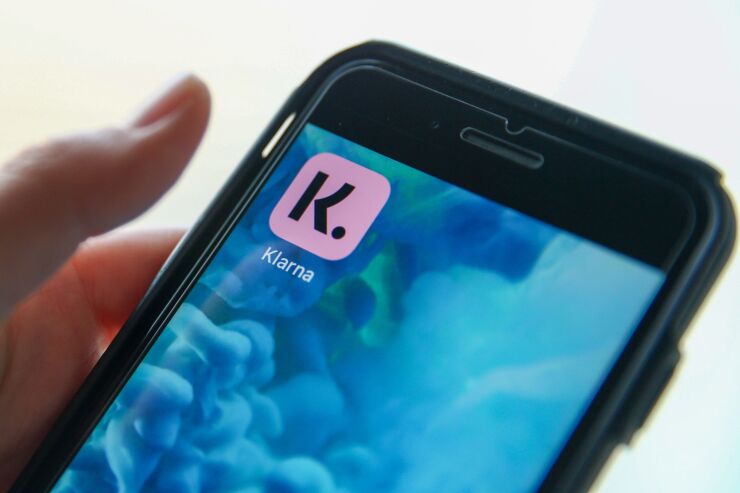The Swedish buy now/pay later company Klarna Bank saw its borrowing costs rise to their highest level on record as rising rates hit the company’s debt and equity valuation.
Europe’s most valuable fintech unicorn saw the credit spreads on some of its floating-rate debt widen sharply in recent sessions as it looks set to take a $16 billion

Buy now/pay later companies, which allow customers to spread the bill for online shopping over months, are growing in popularity as people look for ways to tackle spiraling costs. But rising yields on BNPL companies’ debt mean that increases in business will come with steep costs, which could deepen their existing losses.
A Klarna spokesperson said the business takes into account credit losses when structuring its loans. “We choose the level of risk we are willing to take on a transaction-by-transaction basis,” the spokesman said.
“The big question around the BNPL sector has always been around the sustainability of the business models in a more normalized credit and interest rate environment,” said Michael Taiano, an analyst at Fitch Ratings.
Extra demand for the services of BNPL providers is likely to be from low-income households, increasing the danger of nonpayment and potentially affecting the lenders’ credit performance, Taiano added.
“Higher inflation and interest rates will put pressure on households’ consumption and payment ability. We believe Klarna might see a higher credit loss level with regards to this, although a short loan book is a mitigating factor,” said Sofie Areskoug, a portfolio manager at Spiltan Fonder, which owns Klarna bonds.
Klarna’s loans to customers are for short periods of time. The firm will continue to hold the bonds as Klarna’s capitalization and stable ownership — with investors including SoftBank Group, Sequoia Capital and Permira — indicating that the probability of a default is low, Areskoug said.
Funding costs
Klarna mostly relies on customer deposits from conventional bank accounts it offers in Sweden and Germany to fund its activity, although it also has short-term debt such as floating-rate bonds and commercial paper. A February 2024 floating-rate bond saw Klarna’s discount margin — a measure of the credit spread over benchmark borrowing rates — climb to 272 basis points on Friday before dipping slightly on Monday. It is up 120 basis points this year. In other words, in addition to borrowing costs rising everywhere, the extra yield Klarna has to pay to sell more debt is increasing.
Earlier this year, the Swedish company told Bloomberg that 80% to 85% of its activity is funded from customer deposits. This is a stabilizing factor, Taiano said, as deposit rates tend to rise much slower than market borrowing rates. But they too are likely to increase in the coming months, with Sweden’s Riksbank forecasting that Sweden’s repo rate will be above 1% by the second quarter of next year from 0.25% currently, and rising above 1.5% a year after that.
The Klarna spokesperson said interest rate costs were equivalent to just under 6% of Klarna’s total net operating income and around 5% of operating expenses in 2021, so the risks of rising interest rates should be viewed in the context of their small size in relation to the business’s revenues and costs.
“The ability to raise retail deposits and the overall balance sheet flexibility we derive from our banking license is a clear competitive advantage for Klarna versus other BNPL providers,” he added.
Sector losses
Klarna, which now operates in 20 markets globally, is already running at a loss which almost
The increasingly popular option for shoppers to pay in installments has also come under increasing scrutiny from regulators. The U.K. said last year it would intensify regulation on the sector, while this month the Swedish Authority for Privacy Protection said it had launched an investigation into Klarna’s checkout service.





